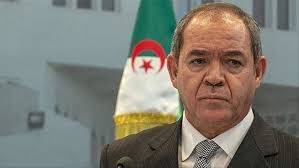The visit of Minister of Foreign Affairs of the People’s Democratic Republic of Algeria, Sabri Boukadoun is expected to throw up another dynamics in the continent.
Both countries are leaders in the continent and the visit has been viewed by many students and scholars of international relations as another win-win for both countries and the African Union (AU), especially with the expected commencement of the African Continental Free Trade Area (AfCFTA) January 2021.
Both countries are also expected to play a big role in the success of AfCFTA.
This is the first visit of a high ranking official from Algeria in recent time. Hence, the visit is viewed as very important to the existing relationship between both countries, which aimed at strengthening and facilitating the partnership between Nigeria and Algeria.
Boukadoun who arrived Nigeria Wednesday evening is expected to discuss issues of mutual benefit between his country and Nigeria.
Algeria is also expected to benefit from Nigeria’s experience in the finance and ICT.
Nigeria is said to be ahead of Algeria in the area of banking. Hence, the visiting minister is expected to leverage on the visit to discuss with the country’s finance officials with the aim of getting Nigeria’s support in developing its banking sector.
It was also gathered that Algeria is interested in partnering Nigeria in actualising the 40-inchx614km Ajaokuta-Kaduna-Kano Gas pipeline project.
The construction of the AKK project will boost domestic gas consumption, power generation and industrialization of Nigeria and will carry gas between the southern and northern parts of Nigeria and will eventually extend to North Africa.
The Nigeria’s Presidency had confidently asserted five months ago that the AKK pipeline project is itself a section of an ambitious pipeline project to supply gas to Europe through the proposed Trans Sahara Gas Pipeline (TSGP) and Nigeria-Morocco Gas Pipelines.
Nigeria is also expected to gain in the area of power/electricity supply, where Algeria is doing greatly. It was believed that collaboration in the area of power where Algeria is reported to have accomplished about 99.1% power suply according to 2019 WCF Electricity Access, Africa Facts Zone.
Although Nigeria has been generating electricity in commercial quantities for over a century, the pace of electricity infrastructure development in the county is very slow and power supply remains highly inadequate.
In 2013, two segments of Nigeria’s power sector (generation and distribution) were privatized to resolve the challenges associated with the prior monopoly of government in power generation, transmission and distribution. However, privatization only changed the dimensions of the challenges and power supply remains largely inadequate, unaffordable and unreliable in the country.
Findings from the Centre for the Study of the Economies of Africa in 2018 revealed that seventy-six million Nigerians or 40.7% of the Nigerian population (more than twice the population of Canada) are not connected to the national power grid. For those connected, power supply is a serious problem as about approximately 90% of total power demanded is not supplied.
According to CESA, in 2018, total installed generation capacity is 12,522 MW, but average operational generation capacity is just 3,879MW of which 7.4% is lost in transmission, and up to 27.7% load is rejected at distribution.
This leaves Nigeria with just about 2,519MW. Yet, Nigeria’s electricity demand is estimated at 24,380 MW in 2015. As a result, Nigerians self-generate a significant portion of their electricity with highly polluting off-grid alternatives and at a cost that is more than twice the cost of grid-based power.





